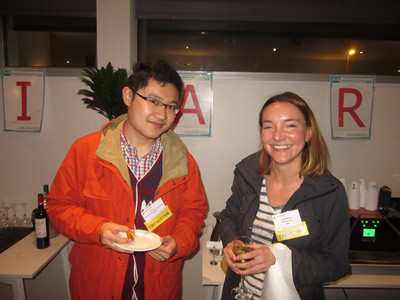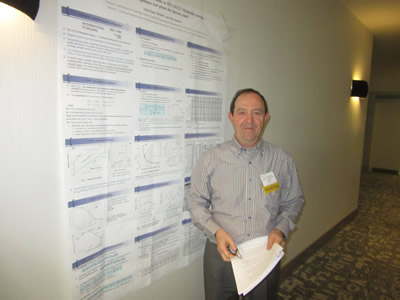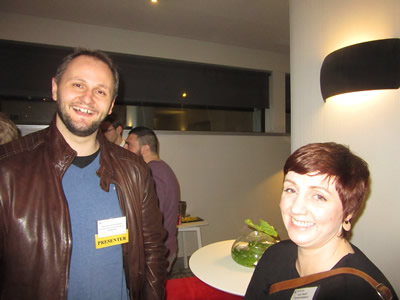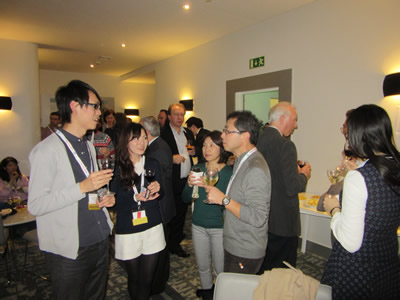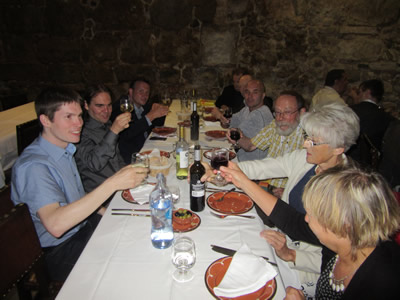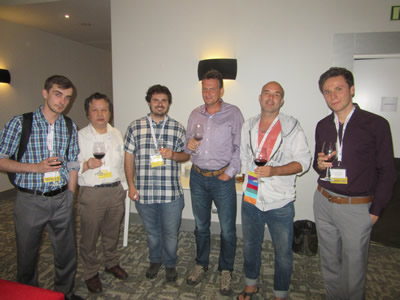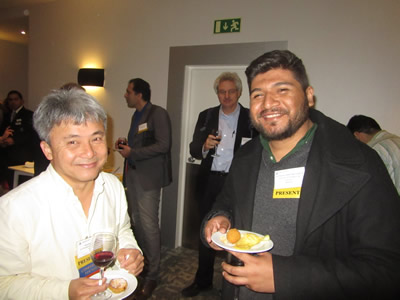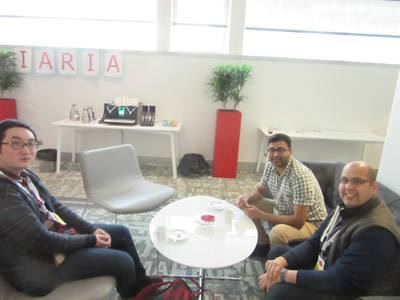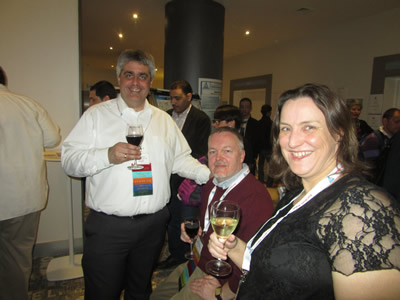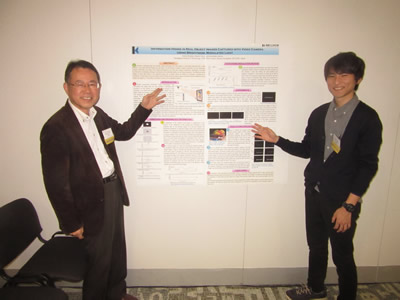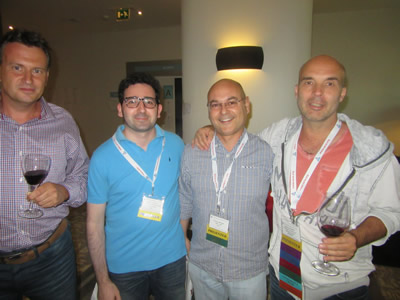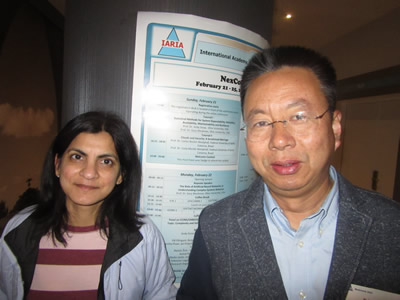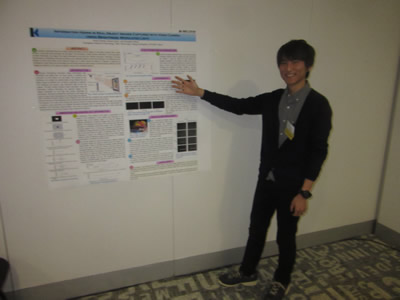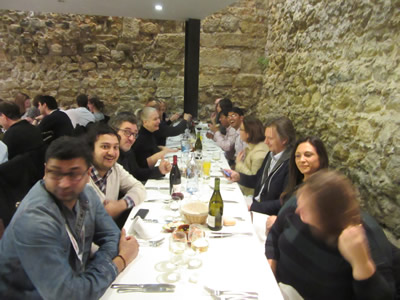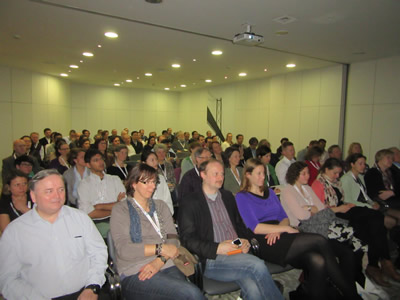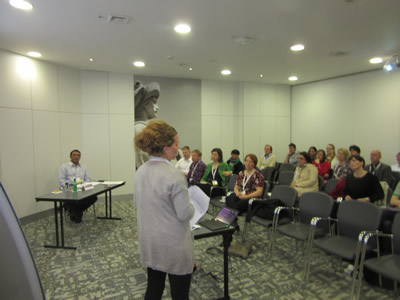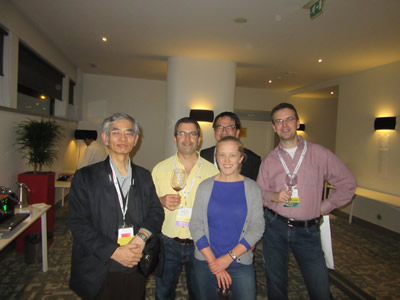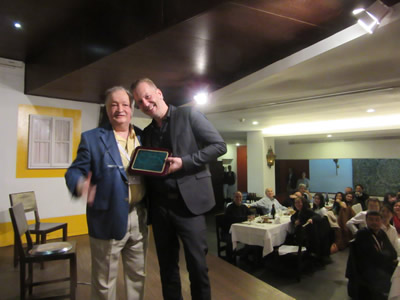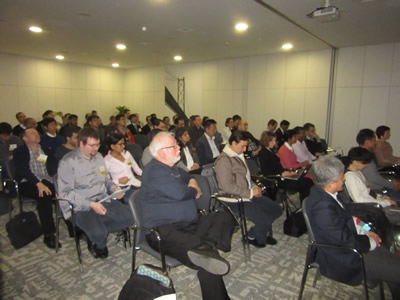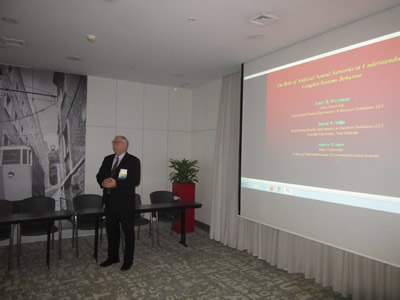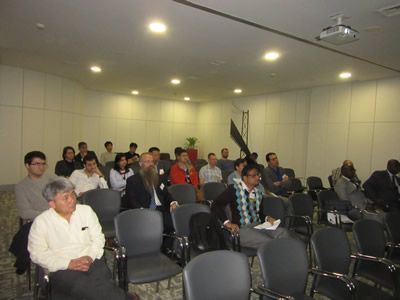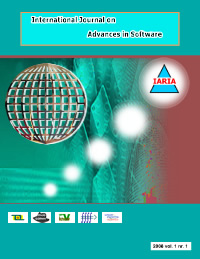ICSEA 2025 - The Twentieth International Conference on Software Engineering Advances
September 28, 2025 - October 02, 2025
ICSEA 2025
Onsite and Online Options: In order to accommodate various situations, we are offering the option for either physical presence or virtual participation (pdf slides or pre-recorded videos).
ISSN: 2308-4235
ISBN: 978-1-68558-296-8
ICSEA 2025 is colocated with the following events as part of SoftNet 2025 Congress:
- ICSEA 2025, The Twentieth International Conference on Software Engineering Advances
- ICSNC 2025, The Twentieth International Conference on Systems and Networks Communications
- CENTRIC 2025, The Eighteenth International Conference on Advances in Human-oriented and Personalized Mechanisms, Technologies, and Services
- VALID 2025, The Seventeenth International Conference on Advances in System Testing and Validation Lifecycle
- SIMUL 2025, The Seventeenth International Conference on Advances in System Modeling and Simulation
- SOTICS 2025, The Fifteenth International Conference on Social Media Technologies, Communication, and Informatics
- INNOV 2025, The Fourteenth International Conference on Communications, Computation, Networks and Technologies
- AISyS 2025, The Second International Conference on AI-based Systems and Services
ICSEA 2025 Steering Committee
ICSEA 2025 conference tracks:
Trends and achievements
Advanced agile software development; Machine learning-oriented software; Fast data-pressing algorithms; Special software for Industry 4.0 applications; Advances on software product line engineering; Software for Cyber-physical systems; Internet-of-Things (IoT)-oriented software; Software for high speed sensing data; Special software for smart cities and urban computation; Deep-software for data analytics; Software for pervasive systems; Software for (self)-configurable systems; Search-based software; Green-oriented software engineering; Symbolic analysis; Software for automated energy optimization; Mobile applications-oriented software; Interactive Big data processing; Crowd-Sourcing Programming; Open source challenges; Emphasizing non-functional requirements; Cognitive software; Accessibility requirements
Advances in fundamentals for software development
Fundamentals in software development; Software architecture, patterns, frameworks; Software analysis and model checking; Software architectural scalability; Requirements engineering and design; Software design (methodologies, patterns, experiences, views, design by contract, design by responsibilities, etc.); Software modeling (OO, non-OO, MDA, SOA, patterns, UML, etc.); Software process and workflow; Software validation and verification; Software testing and testing tools; Software implementation; Software project management (risk analysis, dependencies, etc.); Component-based software development; Service-oriented software development; Software security-based development; Aspect-oriented software development
Advanced mechanisms for software development
Software composition; Process composition and refactoring; Co-design and codeplay; Software dependencies; Plug&play software; Adaptive software; Context-sensitive software; Policy-driven software design; Software rejuvenation; Feature interaction detection and resolution; Embedded software; Parallel and distributed software
Advanced design tools for developing software
Formal specifications in software; Programming mechanisms (real-time, multi-threads, etc.); Programming techniques (feature-oriented, aspects-oriented, generative programming, agents-oriented, contextual-oriented, incremental, stratified, etc.); Requirement specification languages; Programming languages; Automation of software design and implementation; Software design with highly distributed resources (GRID); Web service based software; Scenario-based model synthesis; Merging partial behavioral models; Partial goal/requirement satisfaction
Software engineering for service computing (SOA and Cloud)
Requirements engineering methods and techniques for service computing; Design methods and techniques for service computing; Service-oriented architecture methods and techniques; Service computing technologies; Service level reuse paradigm; Cloud computing development methods; SaaS development methods and techniques; Service computing paradigm; QoS models for service computing; Testing methods for service computing; Approaches to service process improvement; Approaches to Big Data Software Engineering; Approaches to Software Engineering Analytics; Approaches to IoT Software Engineering
Advanced facilities for accessing software
Information modeling; GUI related software; Computer-aided software design; Hierarchical APIs; APIs roles in software development; Ontology support for Web Services; Rapid prototyping tools; Embedded software quality; Thread modeling; Flexible Objects; Use cases; Visual Modeling
Software performance
Software performance modeling; Software performance engineering (UML diagrams, Process algebra, Petri nets, etc.); Software performance requirements; Performance forecast for specific applications; Performance testing; Web-service based software performance; Performance of rule-based software; Methods for performance improvements; Software performance experience reports; Program failures experiences; Error ranking via correlation; Empirical evaluation of defects
Software security, privacy, safeness
Security requirements, design, and engineering; Software safety and security; Security, privacy and safeness in software; Software vulnerabilities; Assessing risks in software; Software for online banking and transactions; Software trace analysis; Software uncertainties; Dynamic detection of likely invariants; Human trust in interactive software; Memory safety; Safety software reuse; High confidence software; Trusted computing; Next generation secure computing
Advances in software testing
Formal approaches for test specifications; Advanced testing methodologies; Static and dynamic analysis; Strategies for testing nondeterministic systems; Testing software releases; Generating tests suites; Evolutionary testing of embedded systems; Algorithmic testing; Exhaustive testing; Black-box testing; Testing at the design level; Testing reactive software; Empirical evaluation
Specialized software advanced applications
Database related software; Software for disaster recovery applications; Software for mobile vehicles; Biomedical-related software; Biometrics related software; Mission critical software; Real-time software; E-health related software; Military software; Crisis-situation software; Software for Bluetooth and mobile phones; Multimedia software applications
Web Accessibility
Design approaches, techniques, and tools to support Web accessibility; Best practices for evaluation, testing reviews and repair techniques; Accessibility across the entire system lifecycle; Accessibility within e-organizations: good practices and experiences; Industry and research collaboration, learning from practice, and technology transfer; Mobile Internet-Web Accessibility; Developing user interfaces for different devices; Dealing with different interaction modalities; Web authoring guidelines and tools; Accessibility and other core areas related to the Web user experience; (UX): Usability, Findability, Valuability, Credibility, etc.; Innovations in assistive technologies for the Web; Accessible graphic formats and tools for their creation; Adaptive Web accessibility; Accessibility and information architecture; Universally accessible graphical design approaches; User Profiling; Cognitive and behavioral psychology of end user experiences and scenarios
Open source software
Open source software (OSS) methodologies; OSS development and debugging; Security in OSS; Performance of OSS; OSS roles and responsibilities; OSS incremental development; Division of labor and coordination mechanisms; Distribution of decision-making; Operational boundaries; Experience reports and lessons learned; Versioning management; Towards generalizing the OSS methodologies and practices; Open source licensing; Industrial movement towards open source
Agile and Lean approaches in software engineering
Agile software methodologies and practices (extreme programming, scrum, feature-driven, etc.); Agile modeling (serial in the large, iterative in the small); Agile model driven design; Agile methodologies for embedded software; Software metrics for agile projects; Lifecycle for agile software development; Agile user experience design; Agility via program automation; Testing into an agile environment; Agile project planning; Agile unified process
Software deployment and maintenance
Software in small and large organizations; Deploying and maintaining open source software; Software maintenance; Software assurance; Patching; Run-time vulnerability checking; Software rejuvenation; Software updates; Partial or temporary feature deprecation; Multi-point software deployment and configuration; On-line software updates
Software engineering techniques, metrics, and formalisms
Software reuse; Software quality metrics (complexity, empiric metrics, etc.); Software re-engineering (reverse engineering); Software composition; Software integration; Consistency checking; Real-time software development; Temporal specification; Model checking; Theorem provers; Modular reasoning; Petri Nets; Formalisms for behavior specification; Advanced techniques for autonomic components and systems
Business technology
Enterprise Content Managements (ECMs); Business Intelligence (BI); Enterprise Portals; Business Process Management (BPM); Corporate Performance Management (CPM); Enterprise Data Warehouse; Web Publishing; Cloud Computing; Virtualisation; Data Mining; Workflows; Business Rules Management (BRM); Data Capturing
Software economics, adoption, and education
Patenting software; Software licensing; Software economics; Software engineering education; Academic and industrial views on software adoption and education; Good-to-great in software adoption and improvement; Software knowledge management
Improving productivity in research on software engineering
Developing frameworks to support research; Methods and tools to improving the research environment; Supporting domain specific research needs; Teaching research skills in Computer Science; Experience reports on well developed research processes; Experience reports on empirical approaches to software engineering research; Approaches to supporting higher degree students in their research; Approaches to enlarge the research / teaching nexus to improve academics productivity; Approaches to integration between university research and industry research; Tools to support the research process; Software process improvement framework (CMMI, etc.); Quality improvement framework; Process simulation and measurement; Test improvement framework
Deadlines:
Submission | Jun 27, 2025 |
Notification | Jul 28, 2025 |
Registration | Aug 10, 2025 |
Camera ready | Aug 24, 2025 |
Deadlines differ for special tracks. Please consult the conference home page for special tracks Call for Papers (if any).





